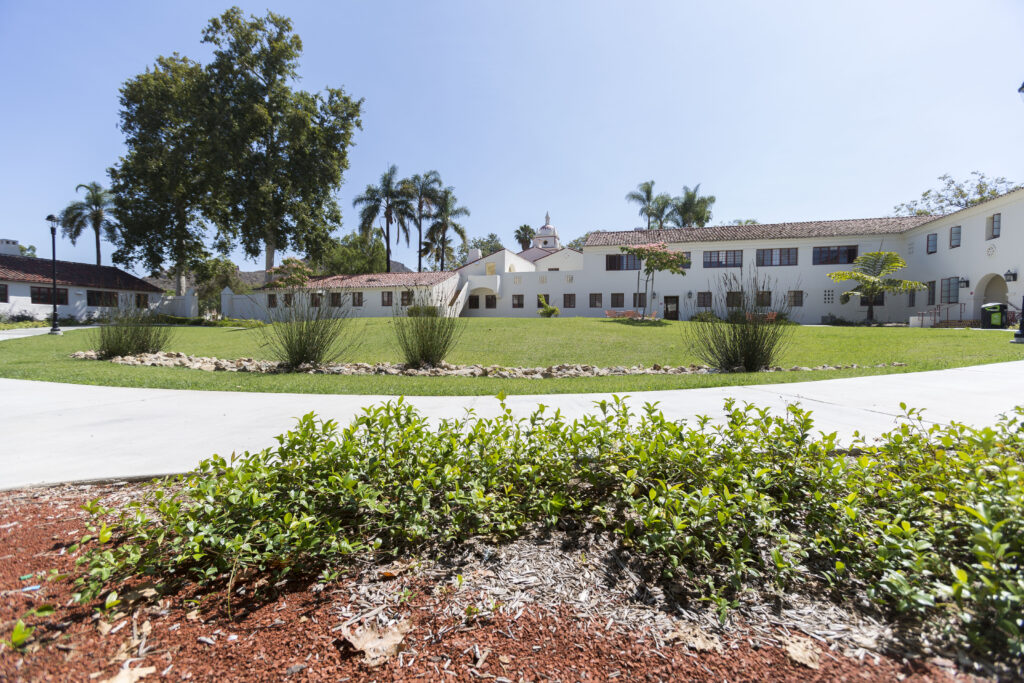“Neither the life of an individual nor the history of a society can be understood without understanding both” —C. Wright Mills, American Sociologist
CAMARILLO — “During that first two weeks I walked around in circles uncertain of what to do or how to manage myself, my son, my partner, my marriage, my students, my community. I wasn’t sleeping but I wasn’t getting anything done either.”
“I used to work at a restaurant in Ventura that was shut down and have been out of work for about three weeks…I am living with three other roommates who all worked at the same restaurant.”
“I just really, really, really miss my son. And my mom. And my everyone. But mostly my son. I’d give anything to wrap my arms around him. I’d give anything to see him roll his eyes at me in person.”
These are passages from “Women of the 2020 COVID-19 Pandemic: A Collection of Journal Entries, Analyses, and Student Reflections.”
This is one of the so-called “plague journals,” a project put together by CSU Channel Islands (CSUCI) students in two classes taught by Assistant Professor of History Robin Mitchell, Ph.D.
“It’s hard to understand history when it’s happening which is why the students created the ‘plague journals’ for historians 50 years from now,” Mitchell said. “For my students, it’s a way of dealing with some of their fears and certainties and allows them to direct these feelings into a journal. Additionally, because they are historians-in-training, it makes sense for them to create something for other historians. It allows them to build a skill set to record something immediate and ferocious in real time.”
Mitchell divided the journal assignment into two parts: In the first, students would interview others about their experiences and capture information that creates a window into the 2020 pandemic, such as downloading a news article or recording a presidential tweet. In the second part of the journal, the students would record their own experiences.
“They talk about things like ‘what was important to. Your two weeks before the pandemic that’s not important to you anymore? Are you afraid? What is it like to lose our school community?” Mitchell said. “The idea for me was to give them a sense of control over a pandemic that is not controllable.”
The beginning of one of the students’ journals reads: “We are compiling these sources because in time of turmoil and panic, the human element is often lost to time. This journal attempts to capture the human element of the COVID-19 outbreak and preserve it for future historians to examine.”
The stories the students shared about themselves and those they interviewed revealed a window into some of the lives changed in just days or hours by the COVID-19 pandemic.
History major Caila Benitez interviewed a Cal Poly graduate who had recently married, had a child on March 12 and was realizing her dream of opening a bakery/restaurant when the pandemic struck.
“We made the decision to close following the stay-at-home orders,” she said. “While we could stay open as we are classified as a restaurant, we wanted to make sure our staff and customers remained safe.”
Class of 2020 History major Jonathon Teague, 25, wrote about his work in the dispatch center for the Oxnard Police Department. After Governor Newsome’s stay-at-home order, Teague noticed more calls about stabbings and shootings.
“As this pandemic goes on, I have taken more 911 calls for overdoses, drunk subjects and sadly, suicidal thoughts or attempts,” Teague said. “The only thing I am really worried about is I’m supposed to be getting married in July, and as of right now, I really am worried if that is going to happen.”
History major/Anthropology minor Desiree Clary was enjoying a return to college after fighting for seven years to receive a kidney and pancreas transplant. Now, the 51-year-old Simi Valley woman was homebound as her anti-rejection drugs left her immunosuppressed. Just as she finished one fight, she was facing another.
“I wrote about my uncertainty and fear, my anger at the misinformation,” said Clary. “I’m concerned about my son and my mom and what happens if my partner loses his job? My fear about my own immunosuppression.”
Mitchell plans to make the diaries available through the John Spoor Broome Library after about five years because “historians study change over time and having them available too soon may be counterproductive,” Mitchell said.
“Just as archival records provided valuable historical insights that help us understand how people responded to the pandemic of 1918-19, these personal stories are powerful primary sources that capture the lived experiences of our CSUCI students, revealing how they have coped with COVID-19, such a significant event in contemporary history,” said Dean of the Library Alicia Virtue, Ed.D.
For students like Clary, it’s a chance to give future historians the sort of history she loves to discover.
“Human scale history is valuable,” Clary said. “It tells you how people felt and thought and worked and survived and cared for themselves. I hope people looking at these diaries 50 or 100 years from now find some value beyond the history we get from the media.”
About California State University Channel Islands — CSU Channel Islands (CSUCI) is reimagining higher education for a new generation and era. We are an innovative higher education institution that enables students to succeed and thrive – serving as an engine for social and economic vitality that provides the intellectual resources necessary for a thriving democracy. With more than 7,000 students, 1,200 employees and 14,000 alumni, CSUCI is poised to grow in size and distinction, while maintaining one of the most student-focused learning environments in public higher education. Connect with and learn more by visiting www.csuci.edu or CSUCI’s Social Media.

